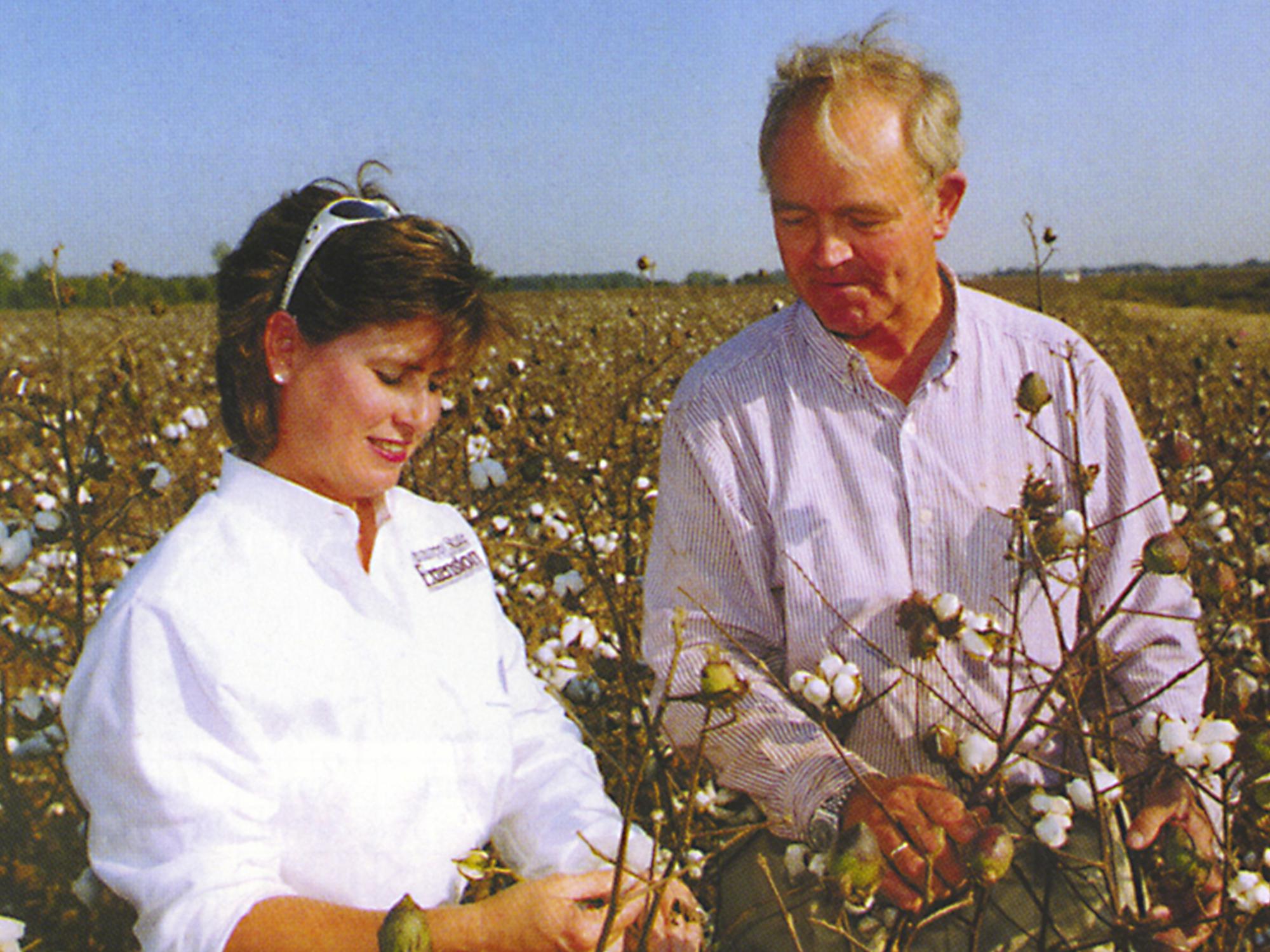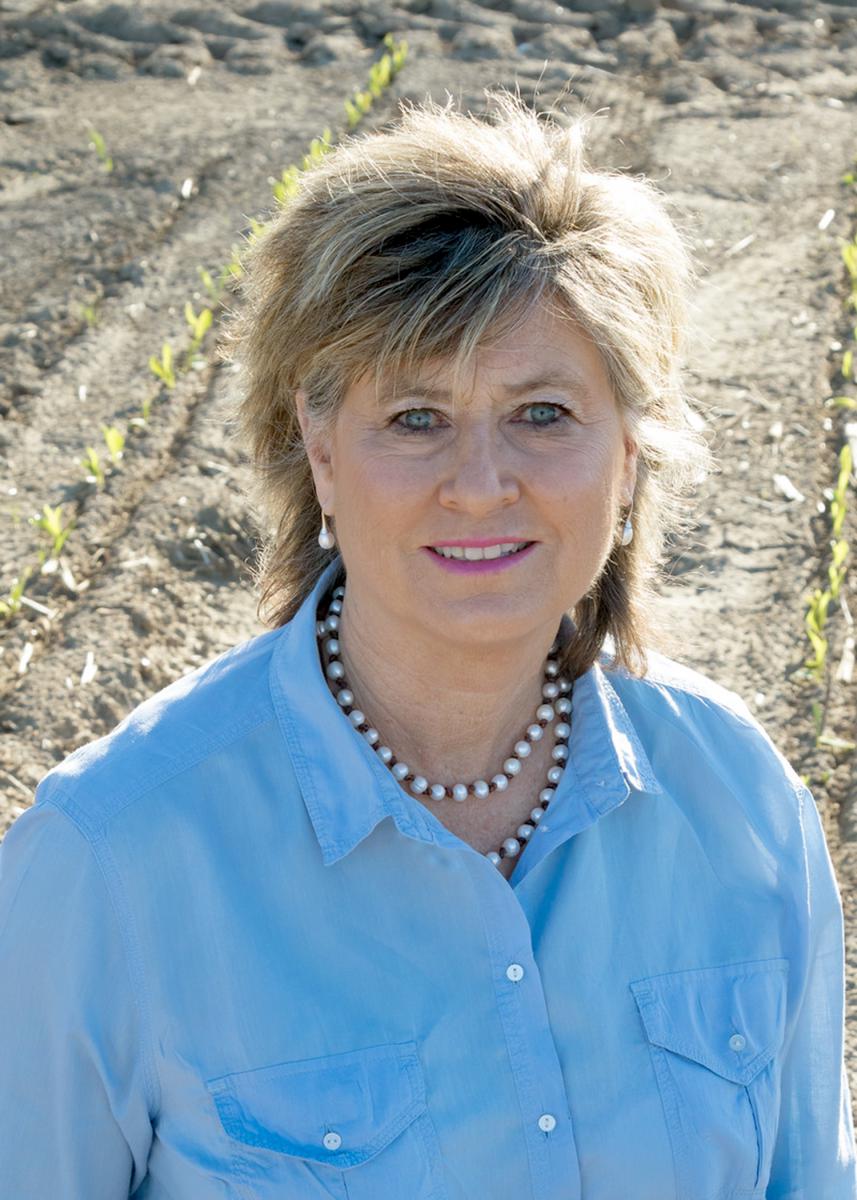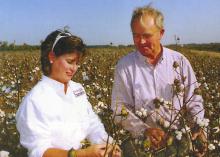Information Possibly Outdated
The information presented on this page was originally released on April 4, 2017. It may not be outdated, but please search our site for more current information. If you plan to quote or reference this information in a publication, please check with the Extension specialist or author before proceeding.
Ruscoe shattered ceilings for future Extension agents
CLARKSDALE, Miss. -- Almost 200 years after Mississippi became a state, residents may find it difficult to imagine a time when women could not be Extension agricultural agents. That time was right up until the late 1990s when Ann Fulcher Ruscoe became the "county agent" for Coahoma County.
"Most entry level jobs for the Extension Service involved 4-H responsibilities. That's how I started in 1980 in Bolivar County," Ruscoe said. "Eventually, 4-H agents would usually become home economists if they were women or county agents if they were men."
In reality, Ruscoe started with the Mississippi State University Extension Service well before that time, when she tagged along with her father, John Fulcher, who was the Washington County agent for 32 years. The Fulcher family had a small farm, and Ruscoe showed livestock and horses in 4-H. She went to rodeos all over the country and developed a strong agricultural foundation.
“I remember watching and listening to Dad at night,” she said. “He was on the phone a lot after normal work hours helping farmers. I rode around with him on farm calls, too.”
Ruscoe looked through the glass ceiling throughout the early years of her career, waiting for the right opportunity.
“When I moved to Coahoma County in 1983, most of my work was in shooting sports and livestock programs, which are great ways to get to know farmers and their children. Eventually, I focused the majority of my time as an assistant county agent on peanuts, pecans and horticulture,” she said. “I was able to grow into the position of helping farmers make decisions and improve their lives. A lot of my 4-H kids are farmers and business people now.”
In 1996, Ruscoe became an area cotton agent, a task she described as huge, both in terms of acreage covered and in its implications for her as a woman. She found a welcoming community of farmers and co-workers.
“I did not experience any pushback, rejection or discouragement,” she said. “In fact, it was just the opposite because I’d grown up from a 4-H member and then through the ranks as an Extension professional.”
Charlie Estess preceded Ruscoe as the Coahoma County agent. The son of an Extension agent himself, he had watched Ruscoe grow through the 4-H horse and livestock projects into a young professional with a great future in Extension.
“The issue for Delta farmers was about plant science and agronomics, not about gender,” Estess explained. “Farmers didn’t care if Extension agents were male or female, as long as they were knowledgeable and true to their word.”
Estess said Ruscoe had all the knowledge and personality traits to work with and help farmers.
“Ann was competitive and professional. Her Extension experience with livestock projects made the move to agronomics seamless,” he said. “She had already worked in several counties with a wide variety of people.”
Ruscoe’s Extension career provided diverse opportunities to grow and learn.
“I never knew how to dress in the mornings. I might be speaking at a Rotary Club at noon and then out in a field getting real dirty in the afternoon,” she said. “I liked that because it wasn’t the same old, same old every day.”
Coahoma County, right in the middle of the Delta’s richest farmland, also helped keep things interesting.
“The county has great farmers who have always been very progressive. They never asked the normal questions; they asked the hard questions,” she said. “Plus, one consultant told me, if there’s an agricultural event that’s going to happen in the state, it’ll happen first in Coahoma County.”
Ruscoe appreciated the farmers who bought in to the new agricultural ideas.
“It may be years later that you find out how much you helped, and helping others is why people work for Extension. It was a good career for me,” she said. “Even when I retired in 2006, I knew I wasn’t going to quit working in agriculture until I was no longer effective or enjoying it. I still enjoy it. Agriculture has changed so much from the time my dad was a county agent until now.”
After retiring from Extension, Ruscoe has continued to work in agriculture. Currently, she is a crop insurance specialist with Diversified Services.
EDITOR’S NOTE: Throughout Mississippi’s bicentennial year, the Mississippi State University Extension Service is spotlighting historic events or stories from the state’s 200-year history.



